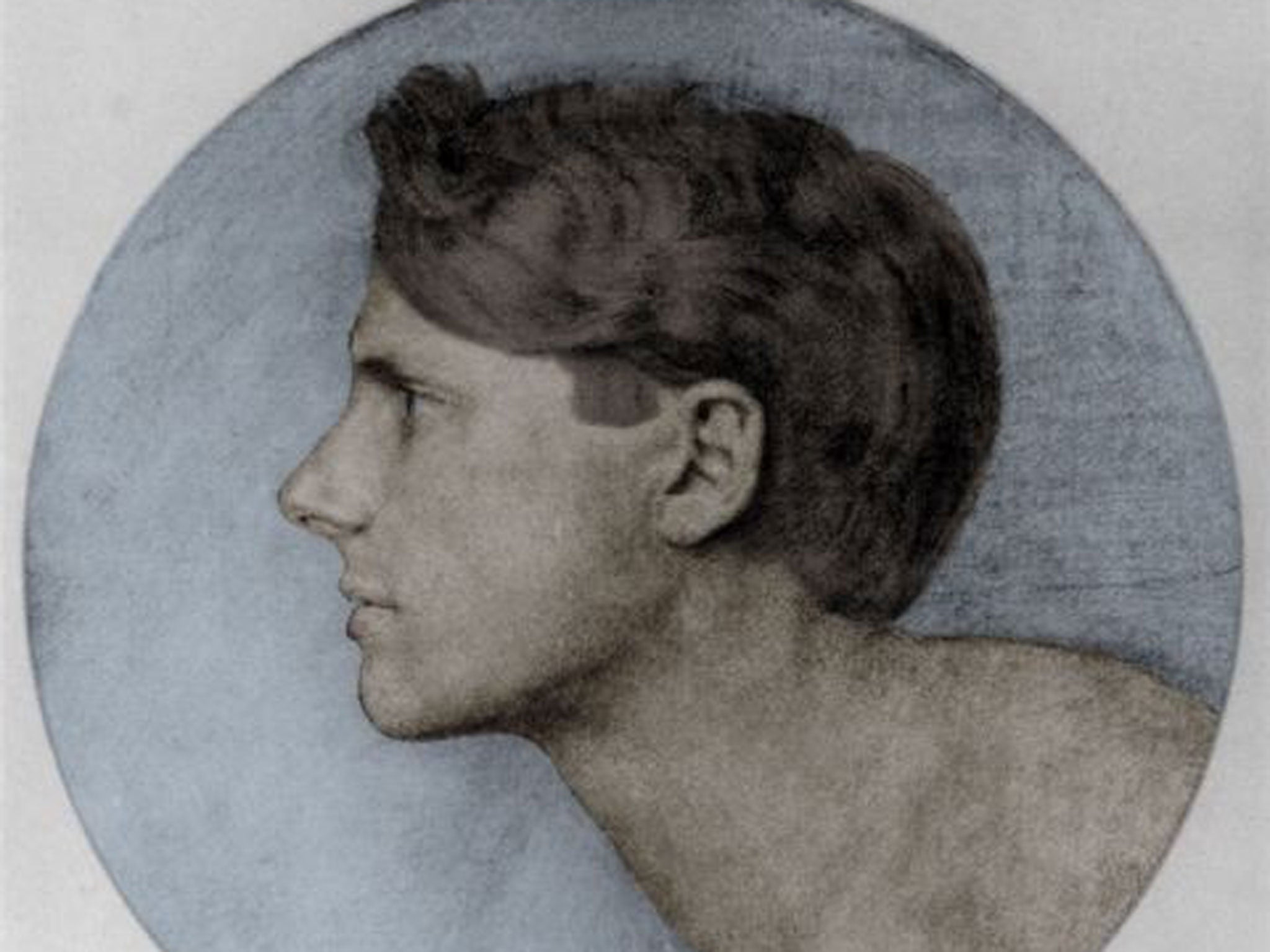The Second I Saw You edited by Lorna C Beckett, book review: Dark side of poet Rupert Brooke
Brooke's lover Phyllis Gardner saw the misogyny the war poet's admirers overlooked

Your support helps us to tell the story
From reproductive rights to climate change to Big Tech, The Independent is on the ground when the story is developing. Whether it's investigating the financials of Elon Musk's pro-Trump PAC or producing our latest documentary, 'The A Word', which shines a light on the American women fighting for reproductive rights, we know how important it is to parse out the facts from the messaging.
At such a critical moment in US history, we need reporters on the ground. Your donation allows us to keep sending journalists to speak to both sides of the story.
The Independent is trusted by Americans across the entire political spectrum. And unlike many other quality news outlets, we choose not to lock Americans out of our reporting and analysis with paywalls. We believe quality journalism should be available to everyone, paid for by those who can afford it.
Your support makes all the difference.If the love affair between Rupert Brooke and Phyllis Gardner hadn't existed, then someone (Alan Hollinghurst probably) would have had to invent it. Mixing lust and secrecy, violence and poetry, grief and much fervent letter writing, the romance has come to light after a century buried in the British Library. There was probably a time when Brooke's erotic passion would have made front page news. As it is, evidence that he called women "beasts" and indulged in some pretty chaste S&M (with an accent on the S) generated lurid headlines in the Daily Mail.
The most valuable impression made by The Second I Saw You comes courtesy of Gardner herself, who proves far more engaging and likeable than her versifying beau. Adventurous if slightly prim, passionate but capable of reining in that passion, she convinces as someone Brooke would like, and emerges as rather too good for him. While he declares his contempt for feminism and his conviction that women will never get the vote (views urged partly by a broken heart), Gardner stands her ground, writing approvingly about suffrage and the Great War's potential for eroding England's class system.
The memoir is made in her mould, by turns open and modest, in its frequent admissions that the author has not quite said what she means: "O Lord! Expression is so difficult?????" Written in 1918, Gardner doesn't paint a portrait so much as attempt a preliminary sketch while Brooke remains a raw memory.
There are lovely moments in which a frustrated narrator recalls trivial details ("I remember excellently well the electric heater") while significant scenes remain, stubbornly or deliberately, at arm's length: "I am blest if I can remember how I got away from the flat," Phyllis states after visiting the poet in London.
Brooke comes off less well. Gardner acknowledges the universal truth of Rupe's hotness. She rhapsodises about his "wild golden hair and keen blue eyes", and compares him regularly to a work of art. This eerie foretaste of Twilight's Bella Swan is apt enough: an art student at the Slade, Gardner sketched Brooke at first sight while the pair flirted à la Brief Encounter in a railway carriage bound for Cambridge.
The poet's charisma is harder to feel. He was, as Lorna C Beckett's helpful if occasionally pedantic editorialising reminds us, promiscuous in his passions, seeing various women in strictly separate compartments, railway or otherwise. This, Beckett argues, wasn't the result of devilish hypocrisy or even a poet's contradictions, but rather a young man's horny aimlessness. Full of sap, Brooke was intent on having his cake and shagging it too.
His wooing can certainly be unsettling. Following an abandoned erotic encounter, Gardner takes Brooke to task for misogyny, "hedonism" and for intimidating her into sex. Brooke's response was to demand admiration for refraining from rape: "Have you forgotten that I could have used my strength and opportunity, and didn't try."
Then again, when Brooke declares that "I must have you here", before indicating what Gardner, ever the painter, calls "the central point of the figure", the result is more Carry On than satanic.
What this fascinating book does illustrate is how Brooke's worst traits (sexism, narcissism) were excused by his severest critics (including Phyllis's mother) as the myth of his doomed genius blossomed after his death in 1915. Gardner herself it seems never recovered from the loss, dedicating her art to Brooke's memory and her life to breeding Irish wolfhounds, before she too died early, aged 48. Eighteen years earlier, she had described him as a "poor lost angel that had come by mistake into a world of inferior beings that did not understand him". Gardner, I suspect, understood him only too well, but tragically neither she nor Brooke had the chance to learn from fleeting youthful indiscretions.
Join our commenting forum
Join thought-provoking conversations, follow other Independent readers and see their replies
Comments